On February 6, 1985, there arrived on the premises of the U.S. Department of Education a new Cabinet Secretary. The man who had chaired the National Endowment for the Humanities for three years had just been unanimously confirmed by the U.S. Senate and now, at age 41, was sworn in as U.S. Secretary of Education.
William Bennett was one of the first Boomers (born 1943 to 1959) to serve as a Cabinet official. It is arguable that William Bennett’s leadership at Education, along with his millions of books sharing stories of exemplary, virtuous role models with Millennial children and youth, has left more of a legacy in the lives of Millennials and Zoomers than that of any other leader of his generation.
We can debate language and thinking processes. But look at the math and science test scores of Millennials and Zoomers compared to us Xers, and it is incontrovertible: William Bennett and his “excellence movement” made the changes in the 1980s that helped Millennials and Zoomers become more knowledgeable and skilled in STEM subjects and (at least as it’s measured academically) more intelligent than us Xers. Add in the character education programs and the books about virtues, count how many Millennial and Zoomer Americans there are today — about 200 million — and I think we’re looking at the biggest leadership legacy of any Boomer.
In retrospect, it’s hard to believe how controversial higher academic standards, civics education, and character education were at the time. During his four years as Education Secretary, William Bennett was called a knight, a bull, a cowboy, a samurai, a brawler, a pit bull, an alley fighter, a tough Irish cop, and the Lone Ranger (and many other things). It’s beyond dispute that Bill Bennett had a scrappy style and raw courage.
With Bill Bennett leading the charge, “the excellence movement” spent those four years advancing character education, civics education, and higher academic standards across all 50 states and D.C. Secretary Bennett and those on his team fought the battle head-to-head on multiple fronts at the same time.
Even in the 1960s, most American public schools had still taught values like personal responsibility, self-discipline, hard work, honesty, friendship, and love of family and country. But beginning in the early 1970s, public schools had turned to moral relativism. Instead of transmitting sound values to America’s children and youth, they began teaching us GenX kids that all values were subjective, relative, and personal and that no set of values was right or wrong.
Bill Bennett believed (and still does) that every student, by high school at the latest, should be familiar with the leaders of America’s founding and the key documents and debates surrounding it, and how our political and civic institutions work in this Republic. Every American student should encounter the ideas and ideals contained in the great works of Western civilization and American history, including the works of James Madison, Abraham Lincoln, and Martin Luther King, Jr.
Bennett and his movement made some progress on character education and civics education in the 1980s, but it was in raising academic standards that the Bennett Revolution struck gold.
Secretary Bennett took the press with him as he went to schools in inner cities that were graduating most of their students, enabling them to attain high ACT or SAT scores, and helping them go onto college and successful careers. It takes thoughtful, disciplined, and loving teachers and principals who treat each student as special even as they expect and enforce good behavior and academic achievement.
Secretary Bennett spoke and wrote and drew attention to what works in education. He placed a great emphasis on empowering teachers and parents, and on all of us urging students to take challenging classes and spend a couple hours each day doing their homework.
In the mid-1980s, states enacted some 3,000 separate school reform measures. Most of these involved new curricular and achievement standards within the work of “the excellence movement”.
The Bennett Revolution had a deep impact. In 1982, only 13 percent of American public high school graduates had taken four years of English and three years each of math, science, and social studies. By 1987, 29 percent were doing so.
William Bennett has always had a simple message: Adults should teach children and youth how to read, speak, write, compute, reason, analyze, comprehend, and solve problems. And adults should teach children and youth how to be responsible, self-regulating, hard-working, honest, trustworthy, courteous, and respectful of other people.
In The Devaluing of America, his 1992 memoir of his nine years in federal office, Bennett expressed it this way: “What determines a young person’s behavior are his deeply held convictions and beliefs. Nature abhors a vacuum; so does a child’s soul. If that soul is not filled with noble sentiments, with virtue, if we do not attend to the ‘better angels of our nature,’ it will be filled with something else.”
My mentor Sam Brunelli, who was Bennett’s point man out in the 50 state capitols in the 1980s, once put it to me this way: “When we listen to him on his podcast or watch him on cable TV programs, we hear the same William Bennett I’ve known for four decades. There is William Bennett the brilliant intellectual with his doctorate in philosophy and his experience as a professor at five universities. And there is William Bennett the regular guy – slinging slang, keeping it real, and displaying his incredible wit. He speaks in a direct, straightforward manner and he speaks with intelligence, with goodwill, with good sense, and with candor.”
Today, I’m pausing to admire William Bennett – more than ever – for his moral philosophy, his profound commitment to children and youth, his knowledgeable leadership on policy, his communication skills, his competitive drive, and above all else his personal character.
Historians have long told us that America’s “Culture Wars” began on February 6, 1985 — the day William Bennett stepped into his office at the Education Department. But I’d say Bennett’s achievements weren’t so much warlike as sensible. It was just common sense.
Today, some 200 million American Millennials and Zoomers are more intelligent because of Bill Bennett, and many millions of them are more virtuous. Very few of them know who to thank, but it would behoove us to be aware of and grateful for William Bennett’s lasting leadership legacy in all of our lives.



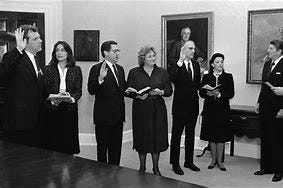
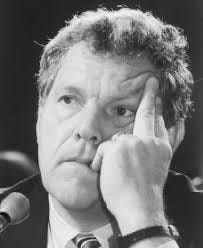
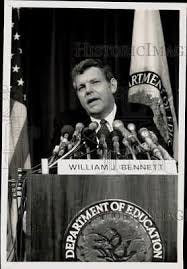
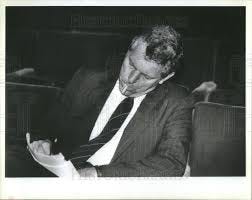
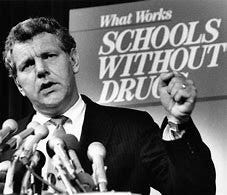
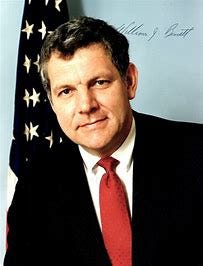
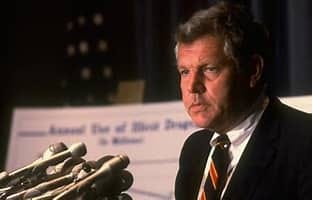
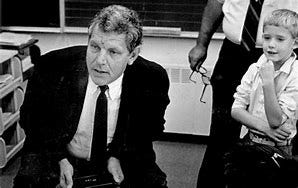
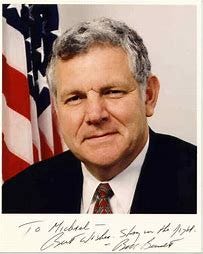
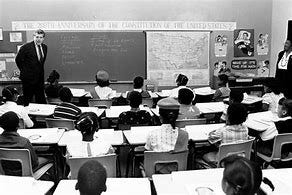
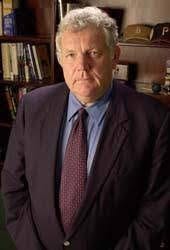
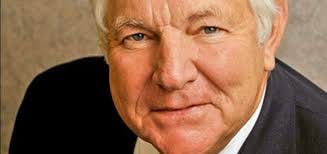
Thank you for highlighting the achievements of William Bennet. I never knew this.
Thank you for such a wonderful essay. Bennet was one of it’s kind. Well done. Francisco.